Iran-US indirect talks gain momentum amid ‘constructive atmosphere’ in Rome
By Alireza Akbari
After nearly four hours of indirect talks with the US delegation led by Steve Witkoff, the US special envoy for West Asia, Iranian Foreign Minister Abbas Araghchi told reporters that the second round of talks had been “productive” and the overall process is “moving forward.”
“This was once again a productive session, and I can say that the negotiation process is moving forward,” the top Iranian diplomat and head of the Iranian delegation said, pausing briefly among a flurry of reporters eager for insights into the indirect discussions.
He noted that “a better understanding” had been reached between the two sides “on a set of principles and objectives,” suggesting the talks are now poised to move into a “next phase.”
According to Iranian Foreign Ministry spokesman Esmaeil Baqaei, the talks were held at the residence of the Omani ambassador in Rome, with Omani Foreign Minister Badr Al Busaidi present as mediator.
The structure mirrored the first round of negotiations that took place in Muscat on April 12.
Baqaei highlighted Al Busaidi’s active role in relaying “messages” between the Iranian and American delegations during the indirect exchanges, once again emphasizing Oman’s key mediating function.
At the end of the second round, Araghchi said the groundwork was being laid for more detailed work.
Ahead of the next round of a high-level negotiations, set to take place on April 26 in Oman, he announced that “expert-level” meetings would begin Wednesday.
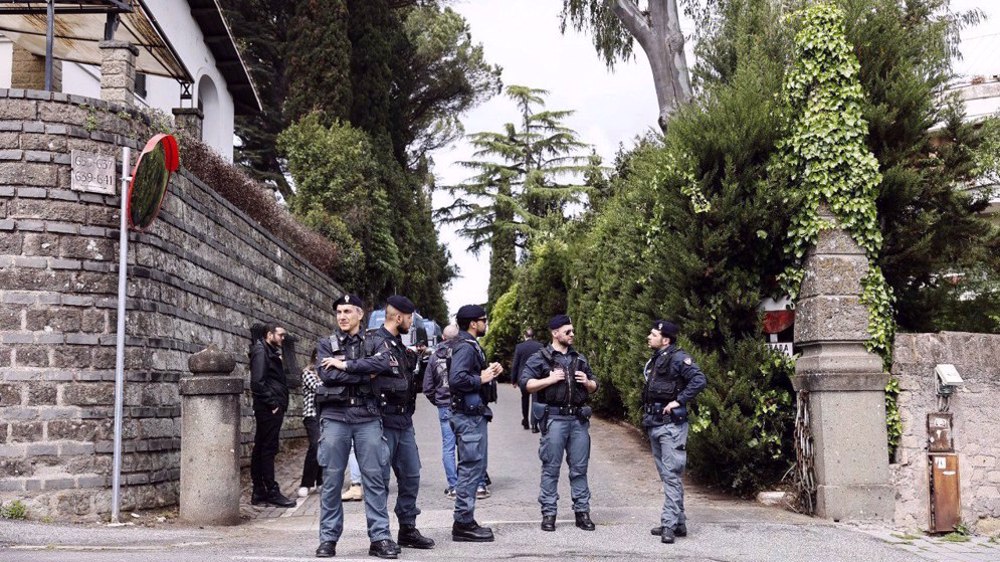
These sessions, he said, would give technical teams “more time to delve into details and to work toward designing a framework for an agreement.”
In a follow-up post on his X, formerly Twitter, Baqaei offered additional details.
“The two sides agreed to continue the indirect talks in few days at technical level to be followed by another round at their own level on coming Saturday,” he stated.
Looking forwarded to the next round of talks, Araghchi also said the outcomes of the expert-level discussions would be thoroughly reviewed to assess how “close” the two sides are to “reaching an agreement.”
Reflecting on the tone of the second round, he said the discussions were held "in a constructive atmosphere," adding that the process "is advancing and we are moving forward.”
On reports of a possible shift to direct negotiations, Iran's foreign minister struck a cautious note.
“Speculations are always present, but I do not confirm any of these speculations. What transpires at the negotiating table remains at the table,” Araghchi emphasized.
“When the talks yield results, those results will speak for themselves. I believe it is best for both the public and the media not to focus too heavily on such conjectures.”
Asked about the role of the International Atomic Energy Agency (IAEA) in a potential agreement between Tehran and Washington, Araghchi acknowledged the agency’s continued significance.
“The agency will be part of this process and will play an important role,” he said, underlining the UN technical body’s ongoing involvement in Iran’s nuclear program.
“Naturally, the agency would have a key role in any potential agreement, as the responsibility for verification and oversight of Iran’s nuclear commitments lies with the IAEA,” Araghchi stated.
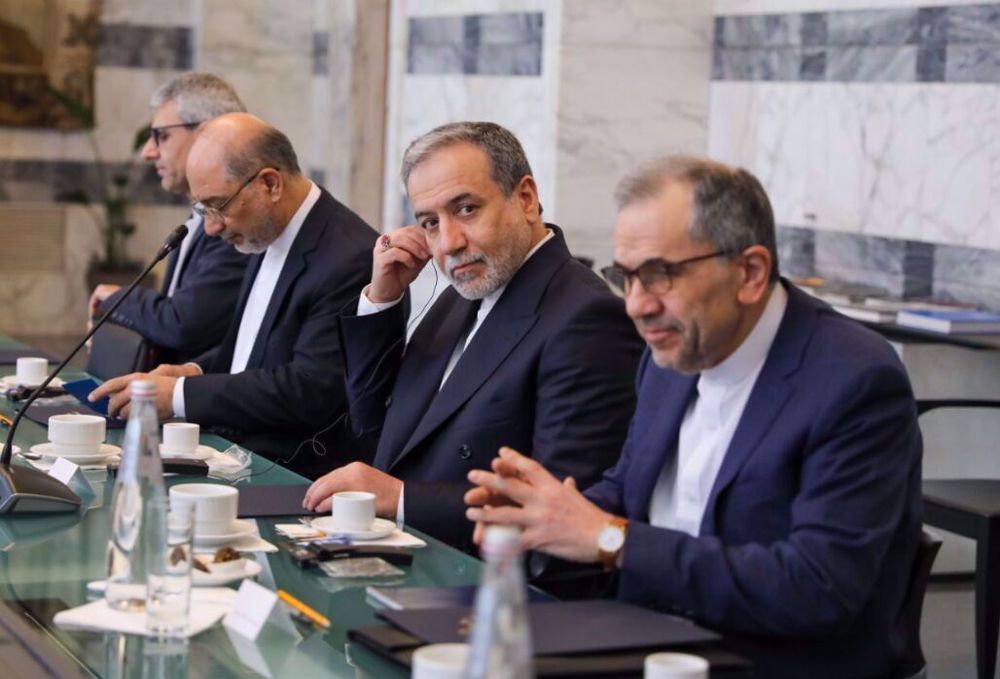
He also addressed the presence of Rafael Grossi, Director General of the IAEA, in Rome. While calling Grossi’s visit “useful,” Araghchi clarified that it did not constitute participation in the ongoing talks.
“We have not yet reached the stage where such involvement is necessary.”
“In this instance, Mr. Grossi came to Rome on his own initiative to meet with Italian officials, and it appears he also held a meeting with Steve Witkoff.”
Araghchi described Grossi’s presence in Rome as a “positive development” in terms of staying informed on the negotiation process. “I had already met with him in Tehran, and had that meeting not taken place, I might have arranged to meet with him here in Rome,” he added.
Touching on the scope of discussions in Rome, Araghchi said, “From our perspective, the subject of the talks is [about] nuclear [issues], and we remain committed to that.”
“Naturally, apart from building trust regarding Iran's peaceful nuclear program in exchange for sanctions relief, there is no other topic that we consider negotiable. So far, they [Americans] have respected this position."
Echoing the foreign minister, Baqaei reaffirmed the “entirely peaceful” nature of Iran’s nuclear program, emphasizing that “preserving Iran’s technical and nuclear achievements is an absolute necessity” throughout the negotiation process.
He noted that the Iranian delegation’s main objective in Rome to achieve the lifting of “unjust sanctions” that have been unfairly imposed on the Iranian people.
“We firmly believe, however, that the illegal sanctions imposed on Iran must be lifted in a reliable manner and with credible guarantees to ensure their effective implementation,” Baqaei said.
According to him, the Iranian delegation entered the indirect negotiations with “full readiness and seriousness,” and is prepared to continue as long as Tehran assesses the process to be “proceeding constructively and with a clear purpose.”
✍️ Analysis: As indirect nuclear talks resume in Rome, why is Iran distrustful of US
— Press TV 🔻 (@PressTV) April 19, 2025
By @M_Homaeefar
More here: https://t.co/zQcvT8ZyVa pic.twitter.com/5awaanPUNA
Just hours after the conclusion of the second round of talks in Rome, Araghchi shared a brief message on his X page, calling the atmosphere “relatively positive,” which, he said, “has enabled progress on principles and objectives of a possible deal.”
He also noted that the Iranian delegation had conveyed a widely shared view within Iran: that “the JCPOA is no longer good enough.” What remains from that deal, he added, “are lessons learned.”
In a phone call with Italian Foreign Minister Antonio Tajani, Araghchi expressed appreciation for Italy’s coordination with Oman in facilitating the indirect negotiations. He added that a successful outcome “remains possible if good faith and realism continue.”
Earlier in the day, Araghchi and Tajani met in person in Rome to discuss bilateral ties and international developments on the sidelines of the nuclear talks with the US delegation.
During the meeting, Araghchi reiterated Iran’s commitment to diplomacy and highlighted the Islamic Republic’s longstanding engagement with international partners on nuclear matters.
Araghchi also emphasized the importance of seizing this opportunity to reach a logical and fair understanding that respects Iran’s legitimate rights, ensures the lifting of unjust sanctions, and builds trust to dispel doubts about the peaceful nature of Tehran’s nuclear program.
He reiterated that Iran’s nuclear program is strictly peaceful and that its opposition to weapons of mass destruction stems from deeply rooted religious and national values, as well as its defensive doctrine.
Araghchi identified the Zionist regime as the only real obstacle to a nuclear-weapons-free Middle East, slamming it for genocide, violations of international law, and aggression against regional nations—all while promoting Iranophobia and fueling insecurity.
Further appreciation came from Baqaei, who acknowledged Italy and Oman for “co-hosting” the second round of Iran-US indirect nuclear talks.
✍️ Viewpoint - Iran-US nuclear talks: A historical overview and future expectations
— Press TV 🔻 (@PressTV) April 19, 2025
By Fatemeh Modaresihttps://t.co/pNWlQUp13z
He underlined Iran’s “good faith,” “sense of responsibility,” and unwavering “commitment to diplomacy” as a civilized and principled path to resolving international disputes, always with “full respect of high interests of the Iranian nation.”
“We are aware that it is not a smooth path,” he wrote, “but we take every step with open eyes, relying also on the past experiences.”
In a statement released later in the day, Oman’s Ministry of Foreign Affairs officially confirmed that Iran and the US had agreed to move forward to the next phase of the negotiations.
The statement further emphasized that the Rome talks were held with the aim of reaching a “fair, permanent, and binding agreement” between the two countries.
Omani Foreign Minister Badr Al Busaidi, who facilitated the negotiations, also shared his reflections on X, praising both delegations for their constructive engagement.
“I would like to thank Dr. Seyed Abbas Araghchi, Foreign Minister of Iran, and Mr. Steve Witkoff, Representative of the President of the United States, for their highly constructive approach during today’s negotiations,” he wrote.
He added that the discussions are “gaining momentum” and that “at this stage, even the unlikely may now be within reach.”
The Trump administration also expressed optimism following the Rome round, noting “very good progress” and confirming that the two sides had “agreed to meet again” next week.
The Iranian side, however, is treading cautiously. As Leader of the Islamic Revolution Ayatollah Seyyed Ali Khamenei remarked last week. Americans remain distrustful in such matters.
It was the Trump administration, in its first term in May 2018, that unilaterally walked out of the Joint Comprehensive Plan of Action (JCPOA), also known as Iran nuclear deal, in a blatant breach of the multilateral agreement and reinstated harsh and illegal sanctions on Iran.
In recent weeks, Trump has repeatedly toyed with the foolhardy idea of military action against Iran, which the Iranian leadership has unequivocally warned against.
As experts say, the ball is in the US court at the moment.
VIDEO | Press TV's news headlines
UN investigators: ‘Hallmarks of genocide’ found in Sudan’s El Fasher
UN rapporteur Albanese: Israel’s West Bank land grab 'will consolidate annexation'
Three Palestinians killed in Israeli raids on Gaza on first day of Ramadan
Hundreds of Dutch nationals served in Israeli military amid Gaza genocide
‘Playing with fire’: Russia sternly warns against any attack on Iran
VIDEO | Iran, Russia naval forces rescue hijacked ship in mock operation during naval drills
VIDEO | Iran, Russia pledge deeper energy, economic ties at Tehran commission


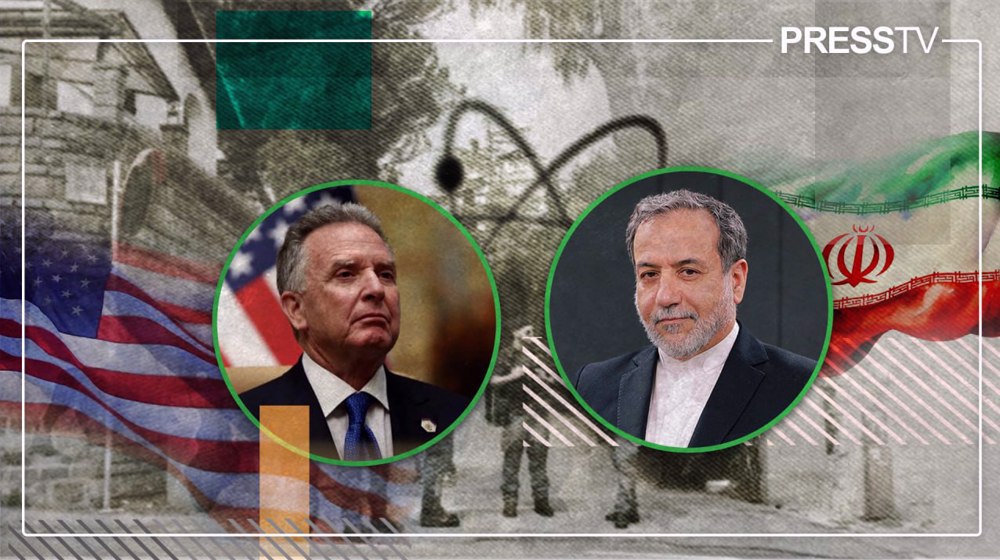
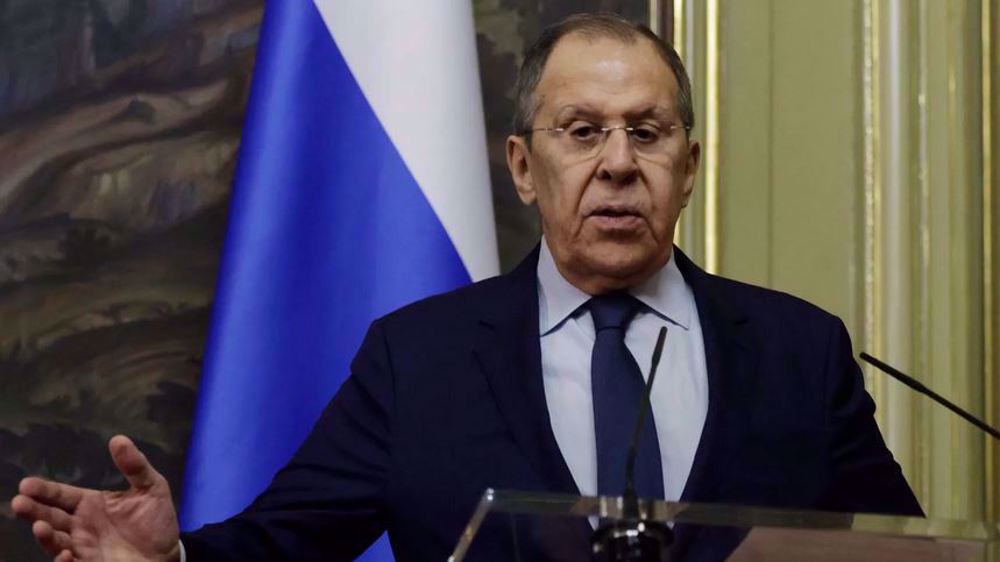
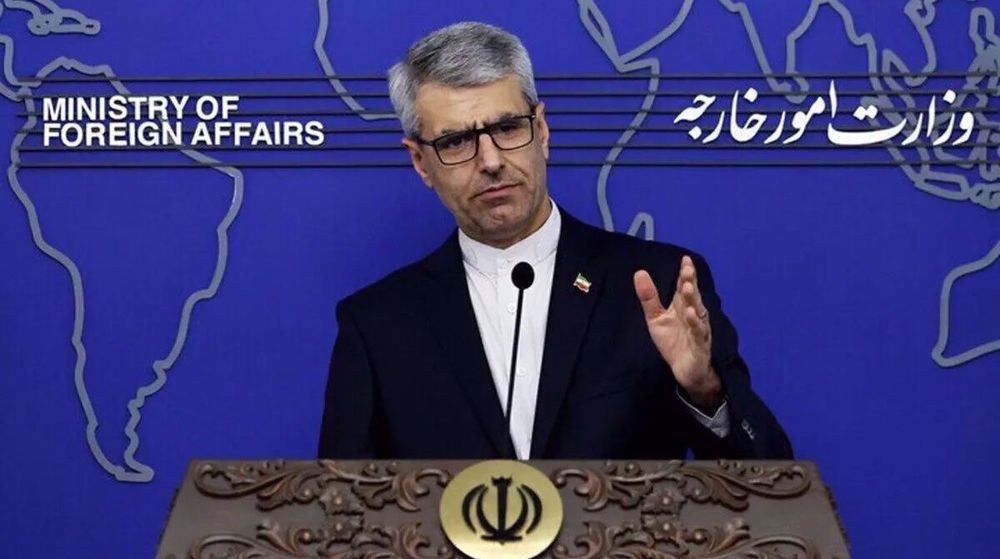
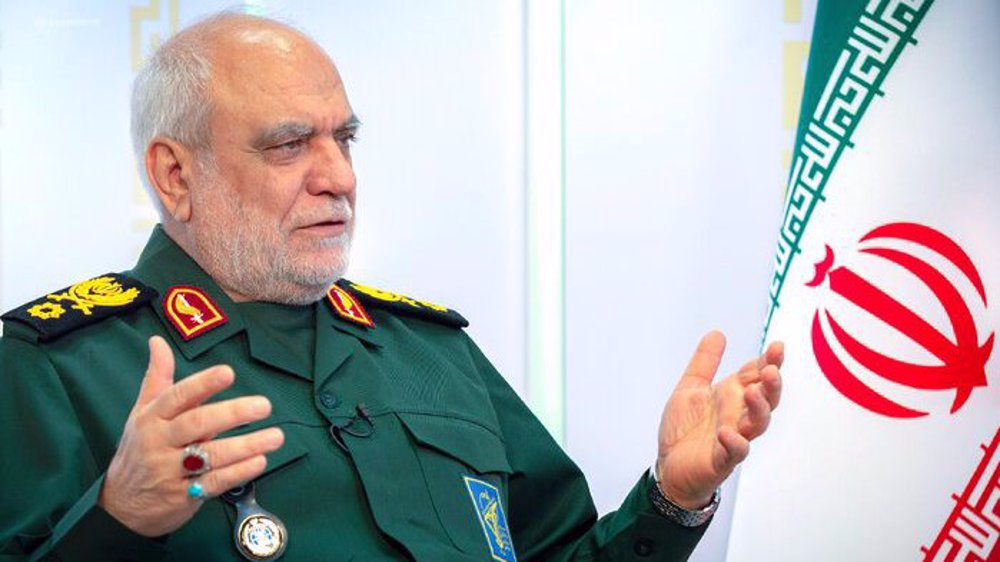



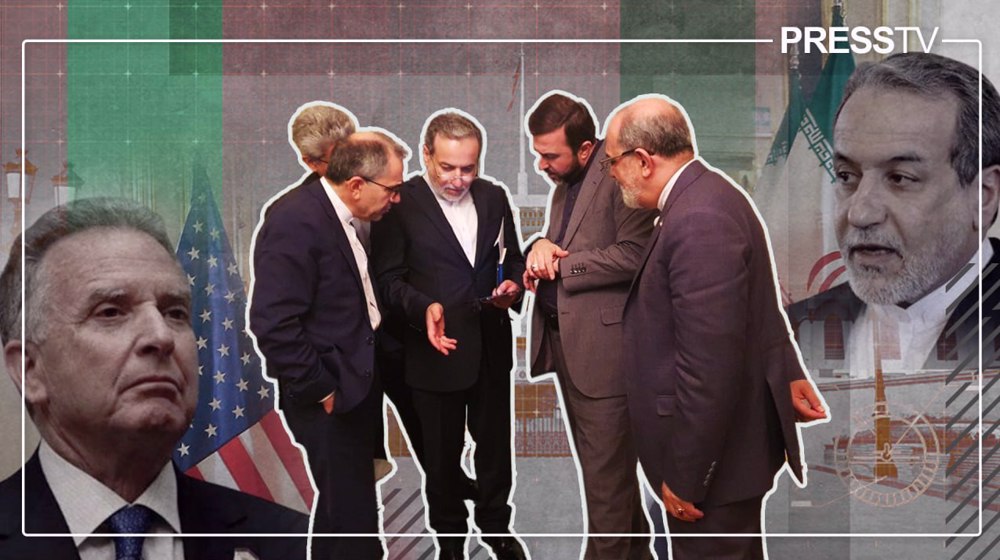
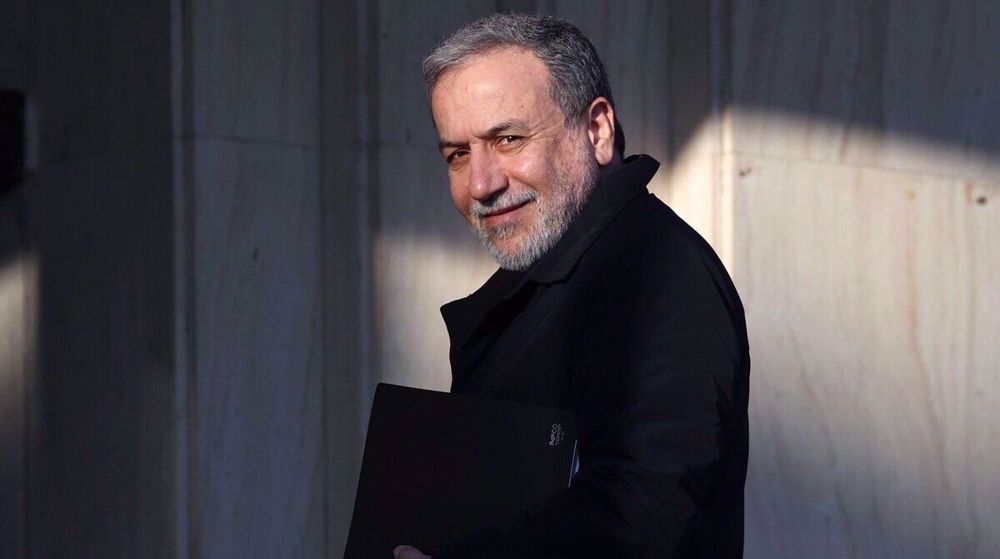
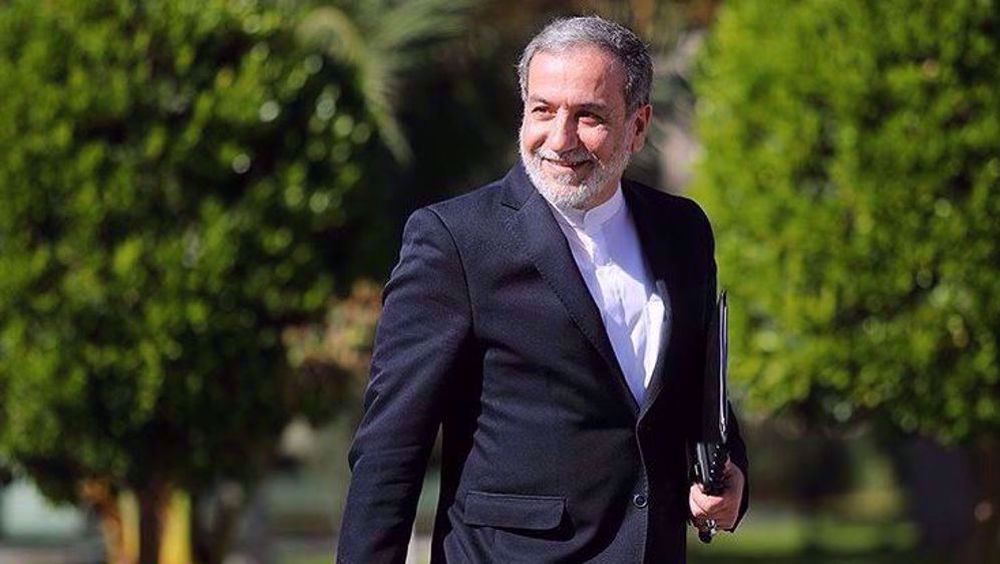
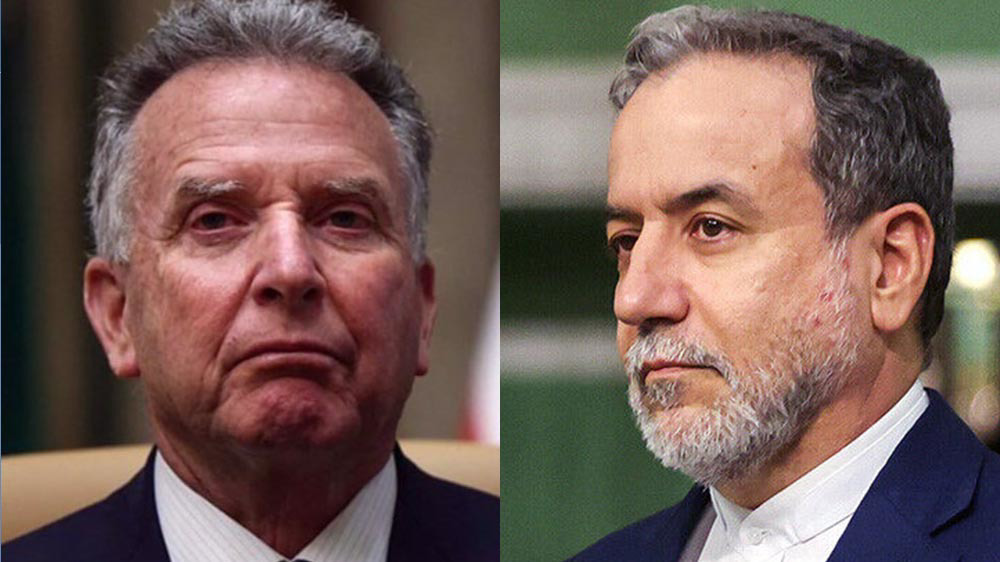
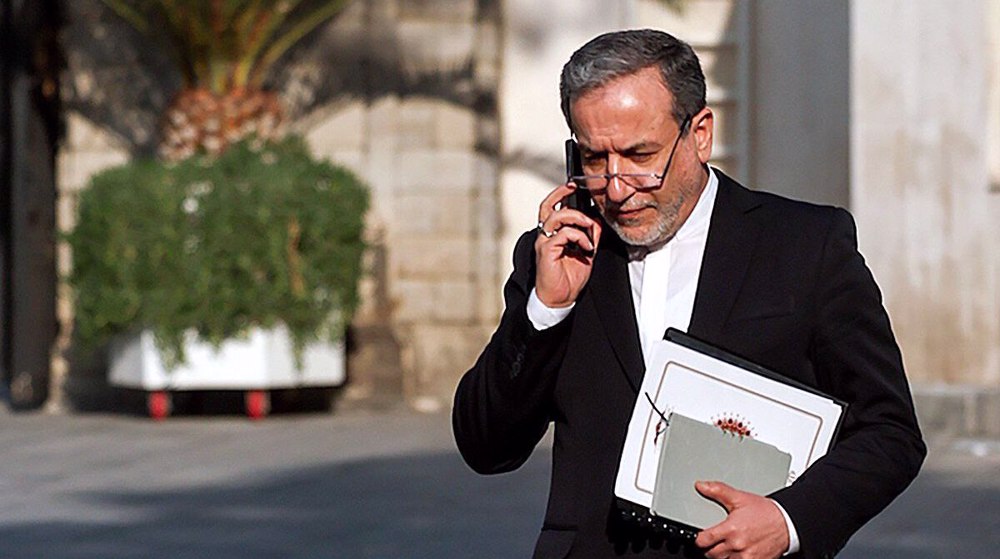

 This makes it easy to access the Press TV website
This makes it easy to access the Press TV website